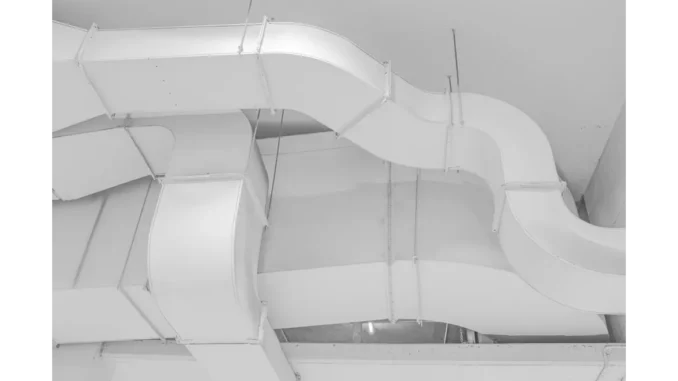
In a quiet corner of a bustling city café, I sat down with Alex, an industry expert with over two decades of experience in building regulations and sustainable architecture. Alex, known for his keen insights and no-nonsense approach, offered to demystify the world of ventilation testing, a topic that has gained increasing importance as our buildings become more energy-efficient.
Air quality is vital in planning. See how Focus360 Energy can assist.
“Ventilation testing,” Alex began, stirring his coffee thoughtfully, “is often underestimated in the grand scheme of building design and construction. With the push towards energy efficiency, we’ve rightly focused on better insulation, but this also means that the natural airflow we once took for granted is no longer there. This is where testing becomes crucial.”
As Alex explained, the primary role of ventilation is not just to circulate fresh air but to maintain a balance—preventing issues like excessive condensation and mould, which can compromise both the structure of a building and the health of its inhabitants. “Imagine living in a brand-new home that’s supposed to be the epitome of modern living, but you find yourself dealing with damp walls and respiratory problems. It’s not just inconvenient; it’s dangerous,” Alex remarked, clearly passionate about the topic.
This is where companies like Focus 360 Energy come into play. With their experienced survey team, they conduct comprehensive ventilation tests to ensure new-build properties meet the necessary standards. According to Alex, this involves using UKAS calibrated equipment to validate airflow measurements, ensuring that both centralised and decentralised mechanical ventilation systems, along with extract fans, are working as intended.
“Focus 360 Energy’s approach is thorough,” Alex noted approvingly. “They don’t just tick boxes. They provide a service that’s integral to the overall safety and compliance of the building. This is particularly important under Part F of the Building Regulations, where ventilation testing is a mandatory requirement for all new developments.”
For Alex, the importance of submitting accurate results to building control cannot be overstated. “It’s like getting a health check for your building,” he said. “You wouldn’t ignore symptoms of ill health in yourself, so why would you in your home or office? The results of these tests are crucial for sign-off under building regulations, ensuring everything is configured correctly from the get-go.”
We delved deeper into the implications of inadequate ventilation. “When ventilation fails, it’s not just about comfort—it’s about long-term health risks and structural integrity,” Alex continued. Poor ventilation can lead to moisture accumulation, creating an ideal environment for mould growth, which can trigger allergies and asthma. Moreover, the structural damage from persistent dampness can be costly to repair.
“Clients often think of ventilation as an afterthought, but it’s really the unsung hero of a healthy building environment,” Alex said with conviction. “Investing in proper testing at the start can save a lot of hassle down the line.”
Throughout our conversation, Alex emphasised the importance of education in changing perceptions. “Many developers and homeowners are still unaware of how critical ventilation testing is. It’s not just a regulatory hurdle—it’s a safeguard for both property value and occupant health.”
As we wrapped up our conversation, Alex left me with a thought-provoking insight: “In the pursuit of a sustainable future, we must remember that energy efficiency and indoor air quality are two sides of the same coin. Without effective ventilation testing, we risk undermining the very benefits we seek from our modern, energy-efficient buildings.”
Leaving the café, I reflected on the discourse. Ventilation testing, as explained by Alex, is much more than a regulatory requirement—it’s a vital component in ensuring that our living and working spaces are safe, comfortable, and sustainable. The work done by teams like Focus 360 Energy is essential in bridging the gap between cutting-edge building practices and the everyday well-being of those who inhabit these spaces.
Find out more at Focus 360 Energy


Be the first to comment